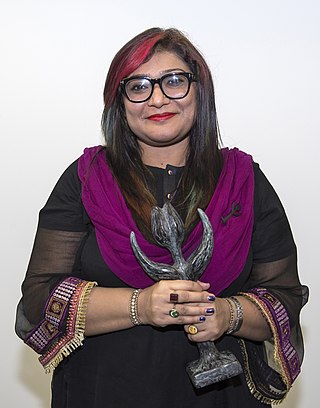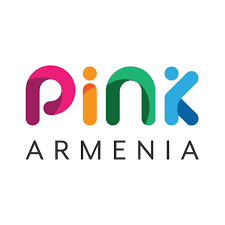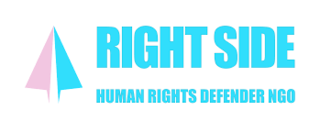A human rights defender or human rights activist is a person who, individually or with others, acts to promote or protect human rights. They can be journalists, environmentalists, whistleblowers, trade unionists, lawyers, teachers, housing campaigners, participants in direct action, or just individuals acting alone. They can defend rights as part of their jobs or in a voluntary capacity. As a result of their activities, human rights defenders (HRDs) are often subjected to reprisals including smears, surveillance, harassment, false charges, arbitrary detention, restrictions on the right to freedom of association, physical attack, and even murder. In 2020, at least 331 HRDs were murdered in 25 countries. The international community and some national governments have attempted to respond to this violence through various protections, but violence against HRDs continues to rise. Women human rights defenders and environmental human rights defenders face greater repression and risks than human rights defenders working on other issues.

The Ministry of Foreign Affairs is the Netherlands' ministry responsible for foreign relations, foreign policy, international development, international trade, diaspora and matters dealing with the European Union, NATO and the Benelux Union. The ministry was created in 1798, as the Department of Foreign Affairs of the Batavian Republic. In 1876, it became the Ministry of Foreign Affairs.
Front Line Defenders, or The International Foundation for the Protection of Human Rights Defenders, is an Irish-based human rights organisation founded in Dublin, Ireland in 2001 to protect those who work non-violently to uphold the human rights of others as outlined in the Universal Declaration of Human Rights.

Majal is a regional not-for-profit organization focused on "amplifying voices of dissent" throughout the Middle East and North Africa via digital media. Founded in Bahrain, the organization "creates platforms and web applications that promote freedom of expression and social justice."

Ni Yulan is a civil rights lawyer in the People's Republic of China. She has established herself in defending human rights in China by providing legal aid to persecuted groups such as Falun Gong practitioners and victims of forced eviction.
Tolekan Asanalievna Ismailova is a Kyrgyz human rights defender and director of Bir Duino Kyrgyzstan since May 2000, the Executive Secretary of the Kyrgyzstan NGOs Forum and founding president of Kyrgyzstan's Coalition for Democracy and Civil Society.
The Václav Havel Human Rights Prize is an annual €60,000 award which honours "outstanding" civil society action in defence of human rights, in Europe and beyond. Individuals, non-governmental organisations and institutions working to defend human rights anywhere in the world may be nominated. Seven of the ten winners to date were in detention because of their human rights activities at the time they received the prize.
Marimuthu Bharathan is an Indian activist for the rights of Dalits. He was awarded the 2012 Human Rights Tulip by the Dutch government, but was refused a passport to leave India to receive the award in person, due to a pending murder charge that he strongly denied.

Biram Ould Dah Ould Abeid is a Mauritanian politician and advocate for the abolition of slavery. He was listed as one of "10 People Who Changed the World You Might Not Have Heard Of" by PeaceLinkLive in 2014, and by Time magazine as one of the "100 Most Influential People". He has also been called the "Mauritanian Nelson Mandela" by online news organisation Middle East Eye.
The International Film Festival and Forum on Human Rights (FIFDH) is one of the most important international events dedicated to cinema and human rights, held annually in Geneva. A ten-days long event is based on the concept ‘A film, A subject, A debate’, following the screenings with discussion in presence of filmmakers and specialists.

Aahung is a non-governmental organisation which aims to improve sexual and reproductive health. It is based in Karachi, Sindh, Pakistan. It was established in 1994, and in 2013 was awarded the annual Human Rights Tulip prize by the Dutch government.

Leyla Islam qizi Yunusova, better known as Leyla Yunus, is an Azerbaijani human rights activist who serves as the director of Institute of Peace and Democracy, a human rights organisation. She is particularly known for her work helping citizens affected by forced evictions in Baku, on whose behalf she organized several small protests.

Rasul Jafarov is a lawyer and prominent human rights defender in Azerbaijan.
The Initiative for the Resurgence of the Abolitionist Movement is an anti-slavery group in Mauritania headed by Biram Dah Abeid. Mauritania is estimated to have between 90,000 and 600,000 slaves. The group has a "network of nine thousand activists" according to journalist Alexis Okeowo.

Nighat Dad is a Pakistani lawyer and Internet activist who runs the not-for-profit organisation Digital Rights Foundation. Her work in the field of IT security has earned her many international awards.

Petra Stienen is a Dutch human rights advocate with more than thirty years’ experience in diplomacy, international relations, civil society, social entrepreneurship and politics.

Nicholas Opiyo is a Ugandan human rights lawyer and campaigner for civil rights and political freedoms. He is the executive director of Chapter Four Uganda.
Lilit Martirosyan is an Armenian LGBTQ+ rights activist known for her 2019 speech to the Armenian Parliament and for founding the Right Side NGO, an Armenian transgender rights group.

Pink Armenia is the first LGBTQIA+ rights non-governmental organization in Armenia. Pink Armenia was founded in 2007 and is headquartered in Yerevan. Its mission is to serve and support the needs of lesbian, gay, bisexual, transgender individuals in Armenia, to promote their human rights protection, and to advocate for the change of public policy around LGBT issues.

Right Side NGO is the first transgender rights organization in Armenia and the first trans-led organization in the South Caucasus region. Right Side NGO was founded in 2016 as a non-governmental organization and is headquartered in Yerevan. Its mission is to serve and support the needs of transgender individuals and sex workers in Armenia, to promote their human rights protection, and to advocate for the change of public policy around transgender and sex work issues.













